Politics
Politics and the pandemic in Pakistan

|
|
Henry Srebrnik
Guest opinion
Pakistan has been struggling to develop an all‑encompassing identity since the founding of the state in 1947. The nation was created as a homeland for Muslims, a place where they would no longer be a minority community in the Hindu‑majority state of India.
Expectations were high that Pakistan would flourish and that its citizens would be unified by their sense of religious identity.
It hasn’t worked out that way. This vision of promise and unity soon encountered the realities of state building. Islamists and secularists disputed the centrality of Islam in the government. Pashtun and Baloch tribes resisted relinquishing their autonomy to the new centralized state.
And now the country deals with COVID-19. As of the end of July, Pakistan has registered nearly 280,000 cases and over 5,900 deaths. The province of Sindh has seen the most cases, with some 119,000, while Punjab has suffered the most deaths, at more than 2,100.
Pakistan was slow in trying to control the spread of the virus. In late March, President Arif Alvi and provincial governors held a meeting with Sunni and Shia clerics to convince them to close mosques for congregational prayers across the country amid rapidly increasing COVID-19 cases in the country. The clerics, however, rejected the request.
Their refusal to shun collective prayers raised doubts about the country’s resolve to fight the pandemic.
Earlier in March, the federal government had allowed Shia pilgrims from Iran to return to the country through Baluchistan province. The pilgrims were not properly quarantined, which resulted in a spike of infections.
By the end of March, with cases surging, various provincial governments had imposed complete lockdowns, but these were lifted in stages in May, ahead of the Muslim festival of Eid al-Fitr, though the disease is not under control. In July, the government imposed a “smart lockdown” in 30 cities in a in a bid to control the virus while minimizing the economic impact.
Pakistan’s public health system was overstretched long before the onset of the coronavirus pandemic. The country has one doctor for every 963 people and one hospital bed for every 1,608 people. It faces a shortage of 200,000 doctors and 1.4 million nurses to cope with the crisis.
When Prime Minister Imran Khan took power in 2018, GDP growth was around 5.8 per cent; now it is 0.98 per cent and is likely to decline further.
One-third of Pakistan’s population already lives below the poverty line while 66 per cent — 145 million people — require immediate relief. Khan launched the Ehsaas Emergency Cash financial relief program on April 1 to help the most vulnerable part of the population.
None of this makes national unity any easier. Especially difficult has been trying to integrate the people of the old Northwest Frontier Province, renamed Khyber-Pakhtunkhwa in 2010, whose 36 million residents are overwhelmingly Sunni Muslims, and four fifths speak Pashto.
Khyber-Pakhtunkhwa has now seen than 33,000 cases of COVID-19, with almost 1,200 deaths. On March 29, Chief Minister Mahmood Khan approved a $255.68 million stimulus economic package to provide relief to almost three million families and the business community. The provincial government has doubled the testing capacity of COVID-19 patients in hospitals across the province.
The Khyber-Pakhtunkhwa Provincial Assembly has 124 elected members: 99 regular seats, 22 seats reserved for women and three seats for Non-Muslims. In the 2018 provincial election, Pakistan’s ruling Tehreek-e-Insaf, the party of Imran Khan, won a landslide victory, taking 63 seats of the 99 regular seats.
The Muttahida Majlis-e-Amal, an alliance of religious groupings including the Jamaat-e-Islami and the Jamiat Ulema-e-Islam Fazl, won 10 seats; the Awami National Party nine, the centre-right Pakistan Muslim League-Nawaz six, and the centre-left Pakistan Peoples’ Party Parliamentarians, four. Independents took five seats.
To add to the province’s complexity, in May 2018 the seven tribal agencies and the six regions on the border with Afghanistan, formerly called the Federally Administrated Tribal Areas (FATA), were merged into Khyber-Pakhtunkhwa.
The first-ever democratic election there took place a year ago. Of the 16 seats up for election, independents won six seats. Pakistan’s ruling Tehreek-e-Insaf won five, the far-right clerical Jamiat Ulema-e-Islam Fazl gained three, and the Jamat-e-Islami and Awami National Party won one seat each.
Henry Srebrnik is a professor of political science at the University of Prince Edward Island.
Source:- TheChronicleHerald.ca
Politics
Trump faces political risks as trial begins – NBC News
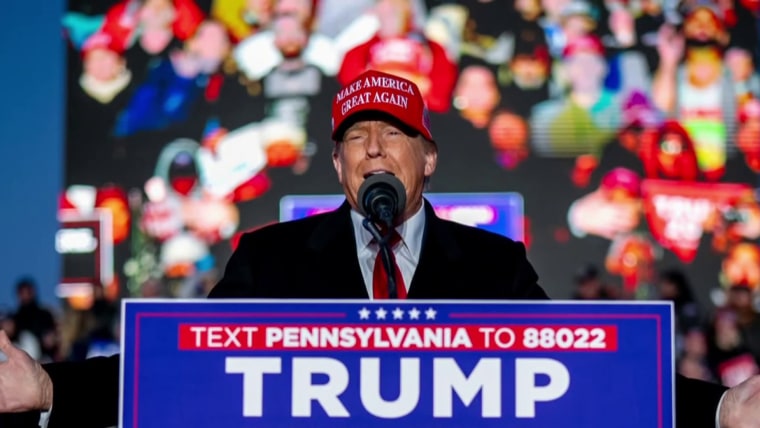

IE 11 is not supported. For an optimal experience visit our site on another browser.
-


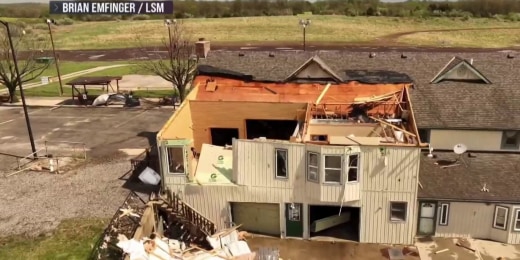
More than 20 tornadoes reported as tens of millions face severe weather threat
00:57
-


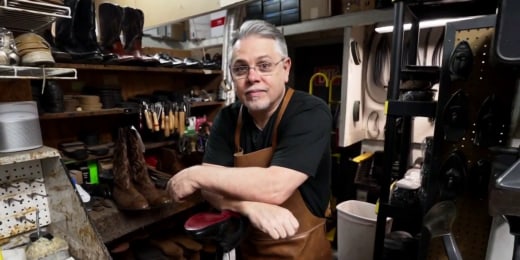
Shoe cobbler becomes unlikely TikTok star
01:48
-


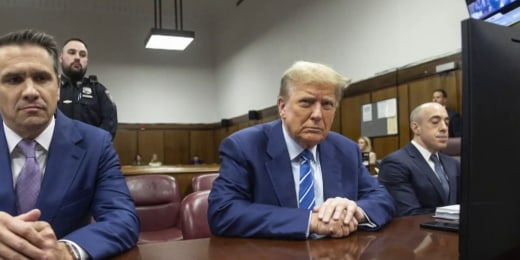
First jurors selected to serve in Trump hush money trial
03:07
-



Israel’s military vows response to Iranian attack
01:31
-



DOJ reportedly set to sue Live Nation in antitrust challenge
00:52
-


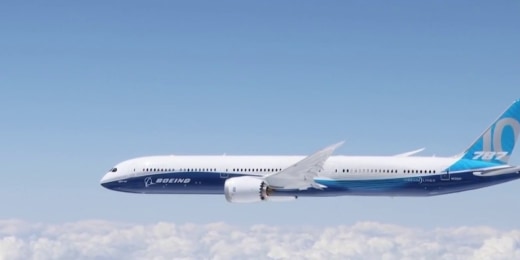
Boeing whistleblower says 787 Dreamliner has production flaw
03:25
-

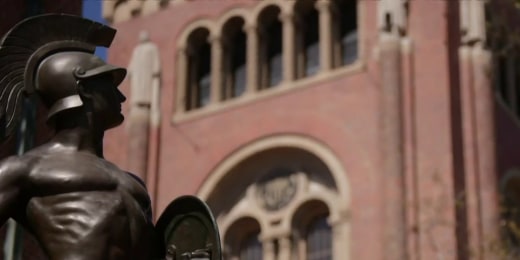
USC cancels commencement speech by class valedictorian
01:36
-

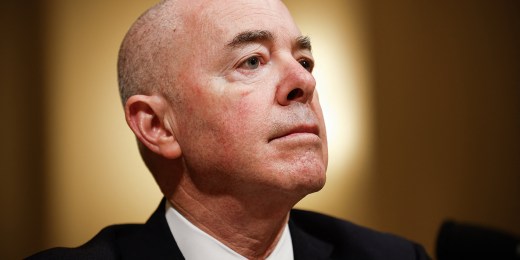
House delivers articles of impeachment against Mayorkas to Senate
01:49
-

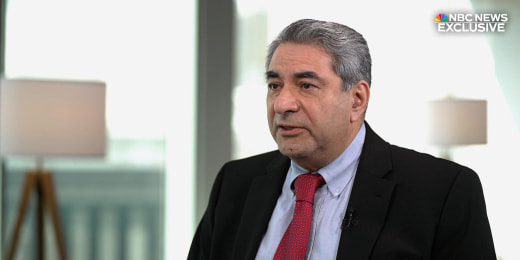
Boeing engineer says worldwide 787 fleet ‘needs attention’
00:20
-

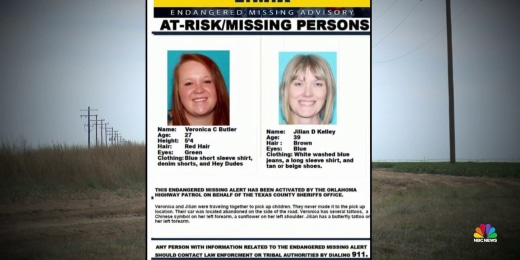
Two bodies found in Oklahoma are believed to be missing Kansas women
01:42
-

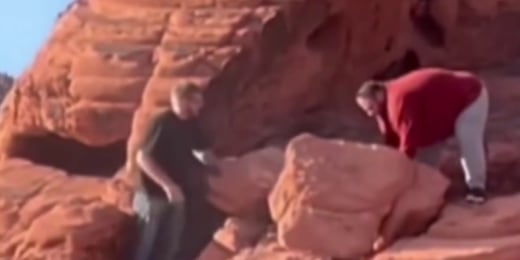
Video shows men damaging ancient rocks in national park
01:46
-


White House tries to prevent a wider war in the Mideast
02:01
-

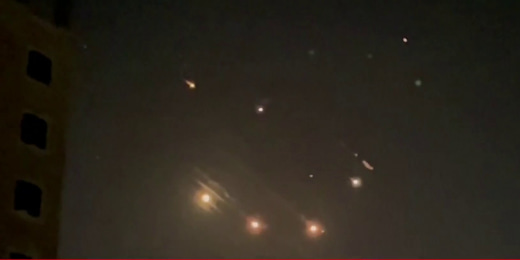
Israel’s military vows military response after Iran attack
02:59
-

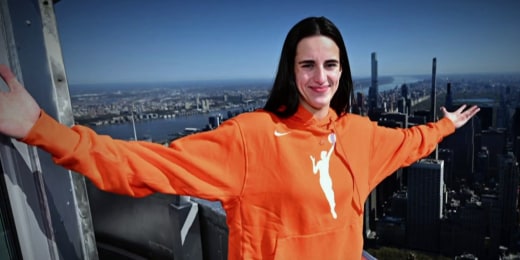
Caitlin Clark talks about her WNBA dream
01:52
-
Now Playing


Trump faces political risks as trial begins
00:53
-
UP NEXT

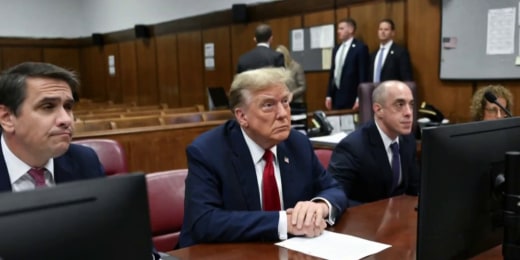
Jury selection begins in Trump’s hush money trial
02:54
-

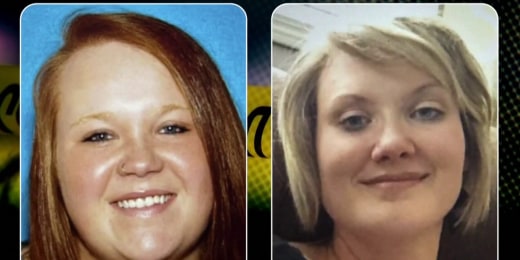
Arrests made in connection to disappearance of two Kansas moms
01:30
-

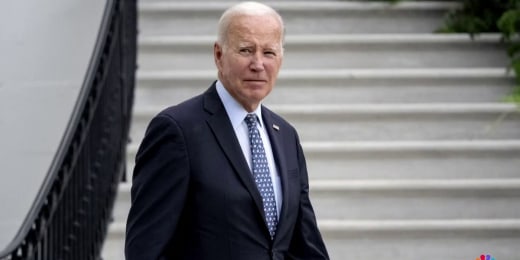
President Biden urges restraint after Iran’s attack on Israel
03:19
-
UP NEXT



More than 20 tornadoes reported as tens of millions face severe weather threat
00:57
-



Shoe cobbler becomes unlikely TikTok star
01:48
-



First jurors selected to serve in Trump hush money trial
03:07
-



Israel’s military vows response to Iranian attack
01:31
-



DOJ reportedly set to sue Live Nation in antitrust challenge
00:52
-



Boeing whistleblower says 787 Dreamliner has production flaw
03:25
Politics
Florida's Bob Graham dead at 87: A leader who looked beyond politics, served ordinary folks – Toronto Star
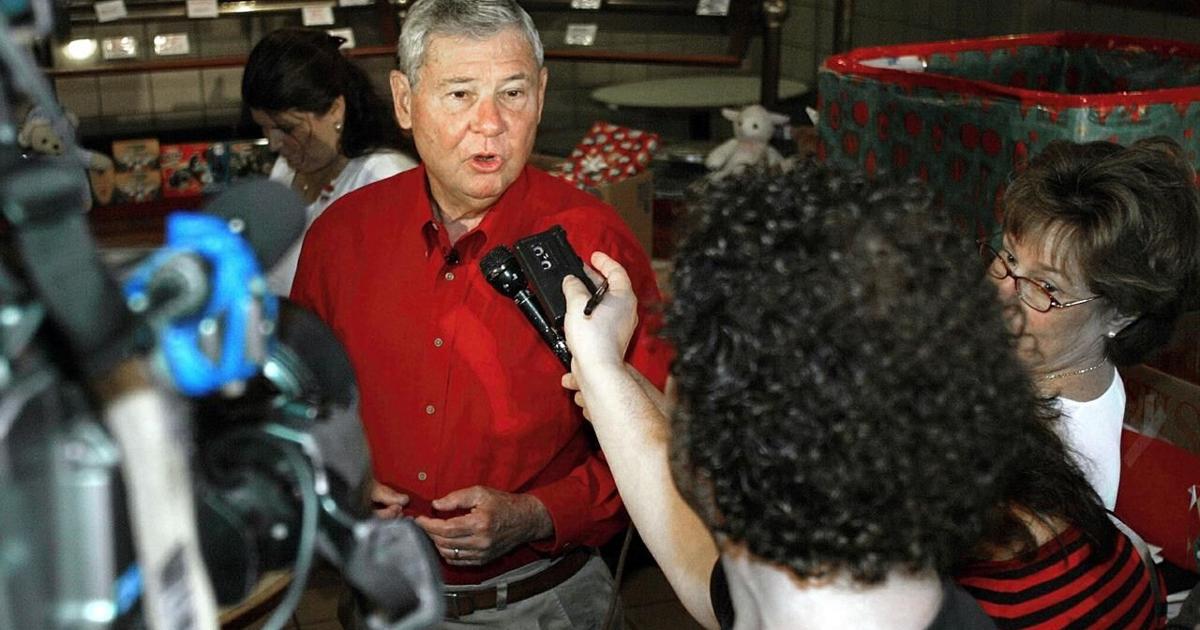

/* OOVVUU Targeting */
const path = ‘/news/world/united-states’;
const siteName = ‘thestar.com’;
let domain = ‘thestar.com’;
if (siteName === ‘thestar.com’)
domain = ‘thestar.com’;
else if (siteName === ‘niagarafallsreview.ca’)
domain = ‘niagara_falls_review’;
else if (siteName === ‘stcatharinesstandard.ca’)
domain = ‘st_catharines_standard’;
else if (siteName === ‘thepeterboroughexaminer.com’)
domain = ‘the_peterborough_examiner’;
else if (siteName === ‘therecord.com’)
domain = ‘the_record’;
else if (siteName === ‘thespec.com’)
domain = ‘the_spec’;
else if (siteName === ‘wellandtribune.ca’)
domain = ‘welland_tribune’;
else if (siteName === ‘bramptonguardian.com’)
domain = ‘brampton_guardian’;
else if (siteName === ‘caledonenterprise.com’)
domain = ‘caledon_enterprise’;
else if (siteName === ‘cambridgetimes.ca’)
domain = ‘cambridge_times’;
else if (siteName === ‘durhamregion.com’)
domain = ‘durham_region’;
else if (siteName === ‘guelphmercury.com’)
domain = ‘guelph_mercury’;
else if (siteName === ‘insidehalton.com’)
domain = ‘inside_halton’;
else if (siteName === ‘insideottawavalley.com’)
domain = ‘inside_ottawa_valley’;
else if (siteName === ‘mississauga.com’)
domain = ‘mississauga’;
else if (siteName === ‘muskokaregion.com’)
domain = ‘muskoka_region’;
else if (siteName === ‘newhamburgindependent.ca’)
domain = ‘new_hamburg_independent’;
else if (siteName === ‘niagarathisweek.com’)
domain = ‘niagara_this_week’;
else if (siteName === ‘northbaynipissing.com’)
domain = ‘north_bay_nipissing’;
else if (siteName === ‘northumberlandnews.com’)
domain = ‘northumberland_news’;
else if (siteName === ‘orangeville.com’)
domain = ‘orangeville’;
else if (siteName === ‘ourwindsor.ca’)
domain = ‘our_windsor’;
else if (siteName === ‘parrysound.com’)
domain = ‘parrysound’;
else if (siteName === ‘simcoe.com’)
domain = ‘simcoe’;
else if (siteName === ‘theifp.ca’)
domain = ‘the_ifp’;
else if (siteName === ‘waterloochronicle.ca’)
domain = ‘waterloo_chronicle’;
else if (siteName === ‘yorkregion.com’)
domain = ‘york_region’;
let sectionTag = ”;
try
if (domain === ‘thestar.com’ && path.indexOf(‘wires/’) = 0)
sectionTag = ‘/business’;
else if (path.indexOf(‘/autos’) >= 0)
sectionTag = ‘/autos’;
else if (path.indexOf(‘/entertainment’) >= 0)
sectionTag = ‘/entertainment’;
else if (path.indexOf(‘/life’) >= 0)
sectionTag = ‘/life’;
else if (path.indexOf(‘/news’) >= 0)
sectionTag = ‘/news’;
else if (path.indexOf(‘/politics’) >= 0)
sectionTag = ‘/politics’;
else if (path.indexOf(‘/sports’) >= 0)
sectionTag = ‘/sports’;
else if (path.indexOf(‘/opinion’) >= 0)
sectionTag = ‘/opinion’;
} catch (ex)
const descriptionUrl = ‘window.location.href’;
const vid = ‘mediainfo.reference_id’;
const cmsId = ‘2665777’;
let url = `https://pubads.g.doubleclick.net/gampad/ads?iu=/58580620/$domain/video/oovvuu$sectionTag&description_url=$descriptionUrl&vid=$vid&cmsid=$cmsId&tfcd=0&npa=0&sz=640×480&ad_rule=0&gdfp_req=1&output=vast&unviewed_position_start=1&env=vp&impl=s&correlator=`;
url = url.split(‘ ‘).join(”);
window.oovvuuReplacementAdServerURL = url;
TALLAHASSEE, Fla. (AP) — A leader like Bob Graham would be a unicorn in the hyper-partisan politics of today.
The former Florida governor and U.S. senator wasn’t a slick, slogan-spouting politician. He didn’t have an us-against-them mentality. Sometimes, he even came across as more of a kind-hearted professor just trying to make the world a better place.
function buildUserSwitchAccountsForm()
var form = document.getElementById(‘user-local-logout-form-switch-accounts’);
if (form) return;
// build form with javascript since having a form element here breaks the payment modal.
var switchForm = document.createElement(‘form’);
switchForm.setAttribute(‘id’,’user-local-logout-form-switch-accounts’);
switchForm.setAttribute(‘method’,’post’);
switchForm.setAttribute(‘action’,’https://www.thestar.com/tncms/auth/logout/?return=https://www.thestar.com/users/login/?referer_url=https%3A%2F%2Fwww.thestar.com%2Fnews%2Fworld%2Funited-states%2Ffloridas-bob-graham-dead-at-87-a-leader-who-looked-beyond-politics-served-ordinary-folks%2Farticle_0920ca6f-2233-5d7e-b2c9-82330901a187.html’);
switchForm.setAttribute(‘style’,’display:none;’);
var refUrl = document.createElement(‘input’); //input element, text
refUrl.setAttribute(‘type’,’hidden’);
refUrl.setAttribute(‘name’,’referer_url’);
refUrl.setAttribute(‘value’,’https://www.thestar.com/news/world/united-states/floridas-bob-graham-dead-at-87-a-leader-who-looked-beyond-politics-served-ordinary-folks/article_0920ca6f-2233-5d7e-b2c9-82330901a187.html’);
var submit = document.createElement(‘input’);
submit.setAttribute(‘type’,’submit’);
submit.setAttribute(‘name’,’logout’);
submit.setAttribute(‘value’,’Logout’);
switchForm.appendChild(refUrl);
switchForm.appendChild(submit);
document.getElementsByTagName(‘body’)[0].appendChild(switchForm);
function handleUserSwitchAccounts()
window.sessionStorage.removeItem(‘bd-viafoura-oidc’); // clear viafoura JWT token
// logout user before sending them to login page via return url
document.getElementById(‘user-local-logout-form-switch-accounts’).submit();
return false;
buildUserSwitchAccountsForm();
console.log(‘=====> bRemoveLastParagraph: ‘,0);
Politics
The Earthquake Shaking BC Politics


|
|
Six months from now Kevin Falcon is going to be staggering toward a catastrophic defeat for the remnants of the BC Liberals.
But what that will mean for the province’s political future is still up in the air, with the uncertainty increased by two shocking polls that show the Conservatives far ahead of BC United and only a few percentage points behind the NDP.
BC United is already toast, done in by self-inflicted wounds and the arrival of John Rustad and the Conservative Party of BC.
Falcon’s party has stumbled since the decision to abandon the BC Liberal brand in favour of BC United. The change, promoted by Falcon and approved by party members, took place a year ago this week. It was an immediate disaster.
That was made much worse when Rustad relaunched the B.C. Conservatives after Falcon kicked him out of caucus for doubting the basic science of climate change.
Falcon’s party had fallen from 33 per cent support to 19 per cent, trailing the Conservatives at 25 per cent. (The NDP has 42 per cent support.) That’s despite his repeated assurances that voters would quickly become familiar with the BC United brand.
BC United is left with almost no safe seats in this election based on the current polling.
Take Abbotsford West, where Mike de Jong is quitting after 30 years in the legislature to seek a federal Conservative nomination. It’s been a BC Liberal/United stronghold. In 2020 de Jong captured 46 per cent of the votes to the New Democrats’ 37 per cent and the Conservatives’ nine per cent.
But that was when the Conservatives were at about eight per cent in the polls, not 25 per cent.
Double their vote in this October’s election at the expense of the Liberals — a cautious estimate — and the NDP wins.
United’s prospects are even worse in ridings that were close in the 2020 election, like Skeena. Ellis Ross took it for the BC Liberals in 2020 with 52 per cent of the vote to the NDP’s 45 per cent.
But there was no Conservative candidate. Rustad has committed to running a candidate in every riding and the NDP can count on an easy win in Skeena.
It’s the same story across the province. The Conservatives and BC United will split the centre-right vote, handing the NDP easy wins and a big majority. And BC United will be fighting to avoid being beaten by the Conservatives in the ridings that are in play.
United’s situation became even more dire last week. A Liaison Strategies poll found the NDP at 38 per cent support, Conservatives at 34 per cent, United at 16 per cent and Greens at 11 per cent. That’s similar to a March poll from Mainstreet Research.
If those polls are accurate, BC United could end up with no seats. Voters who don’t want an NDP government will consider strategic voting based on which party has a chance of winning in their ridings.
Based on the Liaison poll, that would be the Conservatives. That’s especially true outside Vancouver and Vancouver Island, where the poll shows the Conservatives at 39 per cent, the NDP at 30 per cent and United lagging at 19 per cent. (The caveat about the polls’ accuracy is important. Curtis Fric and Philippe J. Fournier offer a useful analysis of possible factors affecting the results on Substack.)
And contributors will also be making some hard choices about which party gets their money. Until now BC United was far ahead of the Conservatives, thanks to its strong fundraising structure and the perception that it was the front-runner on the right. That’s under threat.
The polls also mark a big change in the NDP’s situation. This election looked like a cakewalk, with a divided centre-right splitting the vote and a big majority almost guaranteed. Most polls this year gave the New Democrats at least a 17 per cent lead over the Conservatives.




-

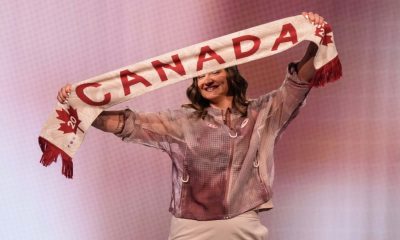

 Sports23 hours ago
Sports23 hours agoTeam Canada’s Olympics looks designed by Lululemon
-



 Tech16 hours ago
Tech16 hours agoiPhone 15 Pro Desperado Mafia model launched at over ₹6.5 lakh- All details about this luxury iPhone from Caviar – HT Tech
-
Business22 hours ago
Firefighters battle wildfire near Edson, Alta., after natural gas line rupture – CBC.ca
-



 Sports15 hours ago
Sports15 hours agoLululemon unveils Canada's official Olympic kit for the Paris games – National Post
-



 Investment23 hours ago
Investment23 hours agoWall Street bosses cheer investment banking gains but stay cautious
-



 Politics21 hours ago
Politics21 hours agoTrump gave MAGA politicians permission to move left on abortion. Some are taking it. – Semafor
-



 Politics22 hours ago
Politics22 hours agoAnti-Trump Republican Larry Hogan navigates dangerous political terrain in pivotal Senate contest – Toronto Star
-



 Science18 hours ago
Science18 hours agoAstronomers discover Milky Way's heaviest known black hole – Xinhua













